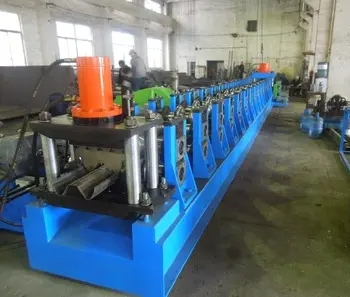
Understanding Tube Mill Machines A Comprehensive Overview
In the realm of manufacturing and industrial processes, tube mill machines play a vital role in producing high-quality tubes and pipes essential for various applications. As industries continue to evolve, the demand for durable and precise tubular products has surged, necessitating the development of advanced tube mill technologies. This article delves into the function, components, applications, and benefits of tube mill machines.
What is a Tube Mill Machine?
A tube mill machine is a specialized piece of equipment designed for the production of tubes and pipes through the continuous forming process. It typically involves the transformation of flat steel coils into cylindrical shapes. The process begins with the feeding of flat steel strips into the machine, where they undergo several stages of bending, welding, and sizing until the final product—a seamless tube—emerges. These machines are vital in producing various types of tubes, including round, square, and rectangular varieties, tailored to meet specific industry requirements.
Key Components of a Tube Mill Machine
A tube mill machine comprises several critical components that work harmoniously to ensure efficient production. Some of the main components include
1. Uncoiler This is used to hold and unwind the steel coil that feeds into the tube mill. 2. Forming Section The forming section consists of a series of rollers that gradually shape the flat strip into a tube. The precision of these rollers is crucial for maintaining uniformity in wall thickness and diameter. 3. Welding Section After the strip is bent into a tubular shape, the edges are welded together. High-frequency induction welding or ERW (Electric Resistance Welding) is commonly used in this process. 4. Sizing Section This component ensures that the welded tube is sized to the right diameter and wall thickness. It usually involves a series of sizing rollers.
5. Cut-off Section The finished tubes are then cut to the desired lengths in this stage. The cut-off saw can be automated for efficiency.
6. Stacking System Once cut, the tubes need to be stacked for further processing or packaging. Automatic stacking systems help streamline this operation.
Applications of Tube Mill Machines
Tube mill machines are employed across various industries, reflecting their versatility and importance. Some key applications include

- Construction Industry Producing structural steel tubes for buildings, bridges, and other infrastructures. - Automotive Sector Manufacturing exhaust pipes, chassis components, and roll bars that require strength and precision. - Oil and Gas Creating pipes for transportation and drilling operations, where durability and resistance to corrosion are critical. - Furniture Manufacturing Forming decorative and functional tubes for furniture design, ensuring aesthetic appeal along with structural stability. - HVAC Systems Producing ductwork and piping necessary for heating, ventilation, and air conditioning systems.
Benefits of Using Tube Mill Machines
The adoption of tube mill machines offers numerous advantages to manufacturers, including
1. Efficiency Tube mill machines are designed for high-speed production, significantly reducing manufacturing time and cost.
2. Consistency The automated nature of these machines ensures uniformity in product quality, minimizing defects and variations.
3. Flexibility Many modern tube mills can easily switch between different types and sizes of tubes, making them suitable for diverse manufacturing requirements.
4. Cost-Effectiveness By streamlining the production process, companies can achieve lower operational costs while maintaining high output levels.
5. Customization Options Advanced tube mill technology allows for the customization of tubes, accommodating unique specifications and client requests.
Conclusion
In conclusion, tube mill machines are indispensable in today's manufacturing landscape, enabling efficient production of various types of tubes and pipes. Their advanced technology, coupled with versatility and cost-effectiveness, makes them an essential investment for industries ranging from construction to automotive. As demand for high-quality tubular products continues to rise, the role of tube mill machines will undoubtedly become even more prominent, paving the way for innovative manufacturing solutions in the future. Understanding and leveraging these machines is key for businesses aiming to stay competitive in the ever-evolving industrial market.